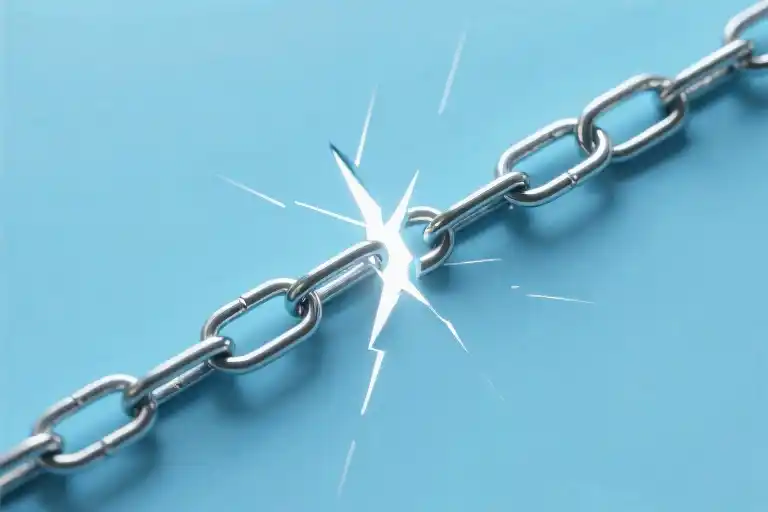Trigger Warning: This article discusses emotional abuse, narcissistic parenting, and the challenges of going no contact with family members. If these topics are triggering for you, please prioritize your wellbeing and consider reading this when you’re in a safe space.
The clock glows 3:47 AM in faded red numbers as I stare at my bedroom ceiling for the fourth consecutive night. My phone sits face-down on the nightstand, heavy with the weight of three drafted messages I can’t bring myself to send. The decision to cut contact with my narcissistic mother feels like standing at the edge of a cliff – terrifying yet strangely peaceful. My stomach churns with a familiar cocktail of dread and guilt that adult children of toxic parents know all too well.
What surprises me most isn’t the sadness, but the visceral fear that I’m committing an unforgivable act of betrayal. Society’s voice whispers through my insomnia: “She’s your mother after all,” while my therapist’s reassurance (“This is about survival, not punishment”) struggles to be heard over the internal chaos. This cognitive dissonance – the heartbreaking gap between knowing something is necessary and feeling it’s wrong – is the cruelest legacy of narcissistic parenting.
For those considering no contact with a narcissistic parent, this emotional civil war isn’t a sign you’re making the wrong choice. In fact, that overwhelming guilt often proves exactly why boundaries are necessary. Healthy relationships don’t leave us feeling like criminals for prioritizing basic wellbeing. The very fact you’re tormented by this decision reveals your capacity for empathy – a trait your parent likely exploited for decades.
What makes cutting ties with a narcissistic parent uniquely agonizing isn’t the loss of the relationship as it exists, but the final surrender of the relationship we always hoped for. We’re not mourning present reality, but the fantasy of having a parent capable of genuine love and accountability. That grief is real and deserves acknowledgment, even as we protect ourselves.
Three elements compound this pain:
- Cultural programming: Nearly every fairy tale, holiday movie, and societal norm equates “good children” with unconditional family loyalty
- Trauma bonding: The intermittent reinforcement (cycles of abuse followed by temporary kindness) creates addictive psychological patterns
- The enabler network: Relatives who say “that’s just how she is” unintentionally gaslight us into doubting our experiences
If you’re reading this with your own version of that 3 AM dread, please know: Your hesitation doesn’t mean you owe anyone access to your life. It means you’re human. The healthiest people in these situations often feel the worst about setting boundaries, because unlike narcissistic parents, we actually consider how our actions affect others.
This article won’t tell you whether to go no contact – only you can make that deeply personal choice. But if you’ve reached the point where limited or no contact feels necessary for your mental health, emotional safety, or even physical survival, what follows is validation for your reality and tools to navigate the journey ahead.
The Weight of the Decision: Why No Contact Feels So Hard
That moment when you finally say “enough” to a narcissistic parent doesn’t feel like victory. There’s no cinematic swelling of music, no sudden lightness in your chest. Instead, it often begins with shaky hands and a hollow ache where certainty should be. If you’re reading this with that same quiet dread, know this first: what you’re feeling isn’t weakness—it’s the residue of years spent walking on emotional broken glass.
The Invisible Backpack of Social Expectations
We carry cultural baggage before we’re old enough to understand what luggage even is. From holiday movies showing perfect family reunions to relatives casually asking “but don’t you miss your mother?”, society reinforces that biological ties equal unconditional obligation. This programming runs so deep that even when rationally knowing better, our nervous systems may still scream that setting boundaries makes us the villain in this story.
Three particularly heavy bricks in this invisible backpack:
- The “Good Child” Myth: Especially in collectivist cultures, the idea that self-sacrifice equals moral superiority
- Selective Amnesia: Outsiders only see the parent’s public persona (“But she’s so charming!”) not the private cruelty
- Spiritual Gaslighting: Misuse of concepts like “forgiveness” to pressure victims into unsafe contact
The Grief for What Never Was
What complicates cutting off toxic parents is that we’re not just losing who they are—we’re finally mourning who they never became. That subconscious hope of “maybe this time they’ll…” creates psychological whiplash. Therapist Pete Walker describes this as the duality of “abandonment depression”—simultaneously fearing connection with the parent while craving the nurturing they cannot provide.
Signs this emotional tug-of-war is affecting you:
- Fantasizing about the parent having a health crisis (secretly wishing they’d force change)
- Keeping “evidence” of their behavior (texts/emails) to reread when guilt surges
- Physical reactions (nausea, tension) when their name appears on your phone
Why Our Brains Betray Us: The Trauma Bond Explained
That sickening guilt after enforcing no contact isn’t a moral failing—it’s neuroscience. Trauma bonds form when intermittent reinforcement (rare moments of kindness amid abuse) creates addiction-like neural pathways. Like lab mice randomly receiving food pellets, we become conditioned to keep pressing the “parent button” hoping for unpredictable rewards.
Key markers of this psychological trap:
| What It Feels Like | What’s Actually Happening |
|---|---|
| “They weren’t that bad” | Cognitive dissonance minimizing abuse |
| Obsessing over good memories | Brain clinging to dopamine hits from rare nice moments |
| Anxiety about their wellbeing | Conditioned caretaker response from childhood role reversal |
The Turning Point: When Pain Becomes Data
A client once told me, “I realized my guilt wasn’t about hurting my mother—it was about finally refusing to let her hurt me.” This shift often comes when we start viewing our anguish as information rather than weakness. That knot in your stomach when considering contact? It’s your body’s way of saying “danger” in the only language it has left after years of being told to ignore its warnings.
Two journal prompts that help reframe the guilt:
- If my best friend described my parent’s behavior coming from their partner, what would I advise?
- What specific emotional or physical symptoms improve during no contact periods?
This isn’t about assigning blame—it’s about recognizing that your nervous system reacts differently to your parent than to other relationships for measurable reasons. That discrepancy holds truth you’re allowed to trust.
The Narcissistic Parent’s Playbook: How They Destroy Boundaries
Growing up with a narcissistic parent often feels like being trapped in a psychological maze where the rules change without warning. What makes these relationships particularly damaging isn’t just the occasional hurtful comment—it’s the systematic erosion of your sense of self through calculated boundary violations. Understanding these patterns isn’t about assigning blame, but about recognizing that your pain stems from real, measurable behaviors rather than personal failure.
The 5 Signature Moves of Narcissistic Parents
- Emotional Blackmail (“If you loved me…”)
The currency of choice in narcissistic families isn’t love—it’s guilt. A classic scenario: “After everything I’ve sacrificed, you won’t even [call daily/visit weekly/financially support me]?” This creates a false equivalence where normal boundaries are framed as heartless betrayals. What healthy parents would consider reasonable independence becomes ammunition for manipulation. - Character Assassination Through Criticism
Unlike constructive feedback that focuses on behavior (“I wish you’d call when running late”), narcissistic parents attack the core self (“You’re so selfish and unreliable”). These aren’t passing comments but sustained campaigns—whether through overt put-downs or “concerned” remarks about your weight/career/relationships that always leave you feeling inadequate. - Gaslighting: The Reality Distortion Field
That gut-wrenching confusion when they flatly deny saying something you clearly remember? That’s gaslighting in action. More subtle versions include reframing abuse as “parental concern” (“I only scream because I care so much”) or rewriting history (“You were never bullied—you’re too sensitive”). Over time, victims start distrusting their own perceptions. - Triangulation: The Family Gossip Network
Narcissistic parents rarely communicate directly about conflicts. Instead, they recruit flying monkeys—siblings, relatives, even your own children—to deliver guilt trips (“Your mother cries herself to sleep because of you”). This creates social pressure while allowing the parent to maintain plausible deniability (“I never said that!”). - The Eternal Victimhood Card
Whether it’s mysterious illnesses, financial “emergencies,” or exaggerated claims of abandonment, narcissistic parents excel at weaponizing vulnerability. A typical script: “How can you abandon me when [insert crisis] is happening?” This forces you into caregiver/crisis-manager roles regardless of your own needs.
Healthy Boundaries vs. Narcissistic Entitlement
In functional relationships, boundaries are like garden fences—mutually respected structures that allow both parties to thrive. With narcissistic parents, any boundary is treated as an insult to their authority. Consider these contrasts:
| Healthy Relationship | Narcissistic Dynamic |
|---|---|
| “I need some space this weekend” is accepted | “After all I’ve done, you owe me your time” |
| Mistakes lead to repair conversations | Errors become permanent character indictments |
| Privacy is respected | Personal matters are demanded as proof of loyalty |
| Support flows both ways | Care is a one-way street to the parent |
Case Study: When “Neediness” Is Control in Disguise
Sarah’s 62-year-old mother suddenly developed “severe arthritis” when Sarah planned her first solo vacation. Doctor visits revealed no physical abnormalities, yet the mother insisted only Sarah could prepare her “special meals.” When Sarah suggested hiring help, the response was tearful: “I guess I’ll just starve then.” The “illness” mysteriously vanished when Sarah canceled her trip.
This illustrates how narcissistic parents often use apparent vulnerability as control tactics. The subtext isn’t “I need help” but “Your autonomy threatens me.”
Why This Matters for No Contact
Recognizing these patterns serves two crucial purposes:
- Validates Your Experience
When society questions why you’d “abandon” a parent, having clear behavioral examples counters the “they mean well” narrative. - Prevents Self-Sabotage
The urge to reconnect often follows nostalgic memories. Remembering specific harmful behaviors helps maintain perspective.
As psychologist Dr. Ramani Durvasula notes: “Narcissistic relationships don’t fail from lack of effort—they fail because only one person is allowed to be human.” Your decision to go no contact isn’t about changing them; it’s about refusing to keep losing yourself in their maze.
Staying Strong: Practical Tools for the No-Contact Journey
The decision to go no contact with a narcissistic parent often feels like stepping onto uncharted emotional terrain. One moment you’re certain it’s the right choice, the next you’re drowning in waves of guilt when Aunt Linda texts, “But she’s your mother!” This chapter isn’t about convincing you—you’ve already done the hardest part by choosing yourself. It’s about equipping you with practical tools to navigate the aftershocks.
When Guilt Feels Like Gravity
That sinking sensation when you ignore their call? The pit in your stomach during family gatherings where you’re conspicuously absent? This isn’t ordinary guilt—it’s what happens when years of conditioning collide with your newfound boundaries. Narcissistic parents excel at installing invisible guilt tripwires:
- The Comparison Trap: “Other children would never…”
- The Martyr Card: “After all I’ve sacrificed…”
- The False Emergency: Sudden hospitalizations when you set limits
Try this: Keep a “Guilt Decoder Journal.” When guilt hits, write:
- The triggering event (e.g., “Mom’s birthday passed”)
- Your bodily reaction (tight chest, nausea)
- What childhood memory this echoes (“She’d cry if I forgot as a kid”)
- Current reality (“I sent a card last year and she mocked it”)
This isn’t about rehashing pain—it’s about retraining your nervous system to recognize manufactured guilt versus genuine remorse.
Scripts for the Inevitable Questions
Well-meaning (and not-so-well-meaning) people will interrogate your decision. Having prepared responses can prevent backsliding:
For casual acquaintances:
“Our relationship became unhealthy. I’m prioritizing my well-being right now.”
For persistent relatives:
“I understand this worries you. If you’d like to support me, I’d appreciate [specific alternative: prayers/not bringing it up/respecting my process].”
For toxic positivity: (“Just forgive and move on!”)
“Forgiveness is a personal journey. Right now, I’m focused on healing.”
Pro tip: Practice these aloud in the mirror until they feel natural. Your voice deserves to take up space.
The Art of Self-Replenishment
Going no contact creates an emotional vacuum where their drama once lived. Fill it intentionally:
- Create replacement rituals:
- If Sunday calls triggered anxiety, now take Sunday forest baths
- Replace birthday guilt with a “Celebrate Me” day
- Build your support constellation:
- Online communities (r/raisedbynarcissists)
- Therapists specializing in complex PTSD
- Friends who get it (“Want to be my chosen family Thanksgiving?”)
- Physical anchors for emotional storms:
- A specific playlist for shaky moments
- A textured stone in your pocket to ground yourself
When They Hoover (Because They Will)
Narcissistic parents often escalate when losing control—what therapists call “hoovering” (like the vacuum). Common tactics:
- Love bombing: Sudden gifts/affection
- Flying monkeys: Relatives doing their bidding
- Crisis manufacturing: Health scares, financial “emergencies”
Your emergency kit:
- A printed list of why you went no contact (for weak moments)
- A trusted friend on speed dial for reality checks
- A pre-written response template:
“I’m not available to discuss this. If this is a true emergency, have [hospital/attorney] contact me directly.”
The Permission Slip You Didn’t Know You Needed
Let me say what your inner child needs to hear:
You’re allowed to…
- Block numbers without explanation
- Skip family events where you’ll be shamed
- Not justify your decision to anyone
- Change your mind about contact levels as needed
- Grieve the parent you deserved but never had
This isn’t selfishness—it’s reclaiming the oxygen mask they kept snatching away.
Your New Normal
In the quiet after no contact, you might initially feel disoriented. That’s not emptiness—it’s the unfamiliar peace of not being emotionally mugged daily. Some days will still hurt. But gradually, you’ll notice:
- Less time spent recovering from interactions
- More mental bandwidth for your own growth
- The slow return of instincts they gaslit away
Healing isn’t linear. If today’s a guilt-heavy day, revisit your Guilt Decoder Journal. If you’re thriving, celebrate that win. This journey is yours alone to pace.
“Boundaries aren’t walls—they’re the gates where you finally get to be the guard.”
Journaling to Reclaim Your Narrative: Separating Their Needs from Yours
One of the most powerful tools I’ve discovered in my no-contact journey sits quietly on my nightstand—a simple notebook filled with messy handwriting and tear stains. This journal became my anchor when the tsunami of guilt threatened to pull me back into destructive family patterns. What began as desperate midnight scribbles evolved into a profound practice of discernment, helping me finally distinguish between my narcissistic parent’s manufactured emergencies and my authentic needs.
Why Pen and Paper Defeat Gaslighting
Narcissistic parents excel at rewriting history. Their constant narrative control leaves us questioning our own memories, perceptions, and even our right to basic needs. Journaling creates an unalterable record they can’t manipulate. When I first started, I’d write:
- Their version: “You’re too sensitive—I was just joking!”
- My bodily truth: Hands shaking, stomach in knots for hours after their ‘joke’
- The pattern: Every birthday since age 10 includes public humiliation disguised as humor
Seeing these entries accumulate revealed what our traumatized brains often suppress—the undeniable consistency of harm.
The Two-Column Liberation Technique
Here’s the transformative practice that helped me dismantle decades of guilt:
- Left Column – Their Demands/Accusations
- “After all I’ve sacrificed, you owe me daily calls”
- “Your therapy is turning you against family”
- “No one will ever love someone as selfish as you”
- Right Column – My Unmet Needs
- Space to process childhood trauma without harassment
- Autonomy to choose relationships that feel safe
- Basic respect for my time and emotional capacity
This visual separation exposed the heartbreaking imbalance—their endless expectations on one side, my fundamental human needs on the other. The pages screamed what my conditioned mind couldn’t yet accept: This was never a relationship—it was an extraction.
Time-Travel Journaling for Perspective
When the guilt feels unbearable (usually around holidays or parental health scares), I use this powerful prompt:
“What would 8-year-old me have needed to hear in that moment?”
Writing comforting responses to my younger self—the one who believed love meant enduring cruelty—often reveals:
- My parent’s behavior would have been unacceptable toward any child
- The boundaries I set now are protecting that wounded child still within me
- My current “selfishness” is actually delayed self-preservation
Tracking the Emotional Payoff
Create a simple monthly tracker noting:
- Guilt flare-ups (dates/triggers)
- Journaling duration (even 5 minutes counts)
- Post-writing emotional shift (rate 1-10)
Over time, most discover what I did—the more consistently we journal, the quicker the guilt dissipates. Those initial 45-minute crying sessions shortened to 10-minute check-ins, then eventually to momentary pangs easily soothed by rereading past entries.
Your Journaling Starter Kit
- Medium matters less than consistency—Use a notes app, voice memos, or crayons on construction paper if that’s what feels accessible.
- Destroy the myth of ‘perfect’ entries—Grammatical errors, angry scribbles, and repetitive phrases all count as healing.
- Protect your truth—If living with unsafe people, consider password-protected digital journals or writing in metaphors only you understand.
Remember: This isn’t about crafting eloquent prose. It’s about creating tangible evidence that your experiences were real, your needs are valid, and your no-contact decision came from a place of profound self-honesty—something your narcissistic parent may never recognize, but your journal always will.
Finding Your Tribe: Support Groups for the No-Contact Journey
When you’ve made the courageous decision to go no contact with a narcissistic parent, one of the most powerful tools at your disposal is finding your people – those who truly understand what you’re going through. Support groups create safe spaces where your experiences are validated without judgment, where you don’t have to explain why “just forgiving them” isn’t the solution.
Why Support Groups Matter
Many of us spent years believing we were the problem – that if we could just be better children, our parents would finally love us the way we needed. In support groups, you’ll hear echoes of your story in others’ experiences. That moment when someone describes your childhood dynamics with uncanny accuracy? That’s when the healing truly begins.
Research shows that group support significantly reduces trauma symptoms by:
- Breaking the isolation that toxic families thrive on
- Providing real-time feedback when self-doubt creeps in
- Offering practical coping strategies from those further along the journey
Online Communities That Get It
For those not ready for face-to-face meetings or living in areas without local groups, these online spaces offer 24/7 understanding:
- Daughters of Narcissistic Mothers (Private Facebook Group) – With over 50k members, this carefully moderated space focuses specifically on maternal narcissism. The “no cross-posting” rule ensures complete privacy.
- Reddit’s r/raisedbynarcissists – A massive community with strict moderation against victim-blaming. Their “Acronym Dictionary” helps newcomers decode common terms like JADE (Justify, Argue, Defend, Explain).
- The Narcissistic Abuse Rehab – Therapist-run Zoom groups with structured themes (“Rebuilding Self-Worth Wednesdays”). Sliding scale fees available.
Pro Tip: When joining any group, observe for a few days first. Healthy communities will:
- Have clear rules against unsolicited advice
- Moderators who shut down “but family is family” comments
- Celebrate small victories as much as big breakthroughs
Local Support Options
Check:
- Your therapist’s office (many clinicians run specialty groups)
- Meetup.com searches for “toxic family recovery”
- Community mental health centers (often low-cost)
What to expect in good meetings:
A typical session might involve:
1. Check-ins ("This week I...")
2. Education component (like spotting "flying monkeys")
3. Shared problem-solving ("How would you handle this text?")
4. Closing affirmationsNavigating Questions from Others
You’ll inevitably face questions from well-meaning (or nosy) people. These scripts help maintain boundaries:
To friends/family:
- “I appreciate your concern, but I need to process this in my own way right now.”
- “This decision came after years of trying other options.”
- “I’d rather focus on [topic change] today.”
If forced to interact with parents:
- “I’m not discussing that topic.” (Repeat as needed)
- “That doesn’t work for me.” (No explanations)
- “I hear you, but my decision stands.”
Remember: You don’t owe anyone your trauma story. As one survivor perfectly stated: “My healing is not your curiosity project.”
When Professional Help Becomes Essential
While peer support is invaluable, certain situations require therapeutic intervention:
- If guilt/shame triggers self-harm urges
- When you’re repeatedly drawn back into contact despite negative consequences
- For processing complex PTSD symptoms
Many therapists now offer specialized modalities like:
- Internal Family Systems (for addressing your “inner child”)
- EMDR (for trauma memory processing)
- Somatic experiencing (for body-based healing)
Important: Look for clinicians experienced in narcissistic abuse recovery – general family therapists may unintentionally reinforce harmful “reconciliation at all costs” narratives.
Your Next Steps
- Bookmark 2-3 online communities tonight
- Practice one boundary phrase in the mirror daily
- Remember: Seeking help isn’t weakness – it’s how we rewrite the survival script they gave us
The road is easier when others hold the lantern. Your people are waiting.
Reclaiming Your Story: The Path Forward After No Contact
“Going no contact isn’t the end of your story—it’s when you finally reclaim your right to be the author.” These words landed differently after my third therapy session following the decision to cut ties with my narcissistic mother. The crushing guilt that first week had convinced me I’d committed some unforgivable act of betrayal, until my therapist handed me a simple truth: What feels like abandonment is actually self-preservation.
When the Ground Feels Unsteady
That first month after establishing no contact with toxic parents often feels like walking through emotional quicksand. You might recognize these moments:
- Waking at 3 AM mentally drafting explanations to skeptical relatives
- Hesitating before deleting yet another guilt-tripping voicemail
- Unexpectedly tearing up at supermarket greeting cards displays
This isn’t regression—it’s the psyche detoxing from years of conditioned responses. Trauma bonds don’t dissolve overnight. What helped me most was understanding these three physiological realities:
- Withdrawal Symptoms (Yes, Really)
The brain registers the loss of toxic interactions similarly to substance withdrawal. Mood swings and fatigue are normal during this recalibration period. - The 90-Day Reset Rule
Neuroscientists note it typically takes three months for the nervous system to adjust to new relational patterns. Track small victories in a journal. - Mirror Neurons Need Retraining
When we’ve been conditioned to anticipate criticism, our brains fire warning signals even in safe situations. Simple grounding techniques like the 4-2-6 breathing method can help:
“Inhale for 4 seconds → Hold for 2 → Exhale for 6 (repeat until your shoulders relax)”
Navigating the External Noise
Well-meaning but misguided comments from others often cut deeper than the narcissistic parent’s absence. Here are compassionate yet firm responses I’ve collected from support groups:
| Common Criticism | Empowered Response |
|---|---|
| “But she’s your mother!” | “Exactly why this decision required so much courage.” |
| “You’ll regret this when she’s gone.” | “I’m preventing regrets about how I treated myself.” |
| “Family sticks together.” | “Healthy trees grow when dead branches are pruned.” |
For particularly persistent “flying monkeys” (those who carry the narcissist’s messages), try the BIFF method (Brief, Informative, Friendly, Firm):
“I appreciate your concern, but my healthcare team and I have made this decision carefully. Let’s talk about something else now.”
Your Healing Toolkit
- The Boundary Box Exercise
- Find a physical container (shoe box, decorative tin)
- Write down every manipulative phrase, guilt-trip, or painful memory
- Seal them inside with this affirmation: “These belong to the past, not my present”
- Support System Mapping
Create three concentric circles:
- Inner Circle (2-3 people who fully support no contact)
- Middle Circle (those who try but don’t fully understand)
- Outer Circle (those requiring strict information diets)
- Redefine Family Rituals
- Host “Chosen Family” holidays with supportive friends
- Start new traditions (solo travel on difficult dates)
- Volunteer with organizations that nurture your values
The Unexpected Gifts
In time, you’ll notice subtle shifts:
- Waking without that familiar sense of dread
- Making decisions without mentally rehearsing justifications
- Noticing physical symptoms (migraines, digestive issues) improving
One survivor described it perfectly: “It’s like I’d been standing in a hurricane for decades, and no contact was stepping into a sheltered doorway. The silence wasn’t empty—it was peaceful.”
Now I’d love to hear from you: What’s one small moment where you felt the positive impact of establishing boundaries? Share in the comments—your story might be the lifeline someone needs today.
For immediate support, try these resources:
- Adult Children of Emotionally Immature Parents (Book)
- @TheBoundaryBootcamp (Instagram therapist)
- 5-minute Grounding Meditation (Link)






Good shout.